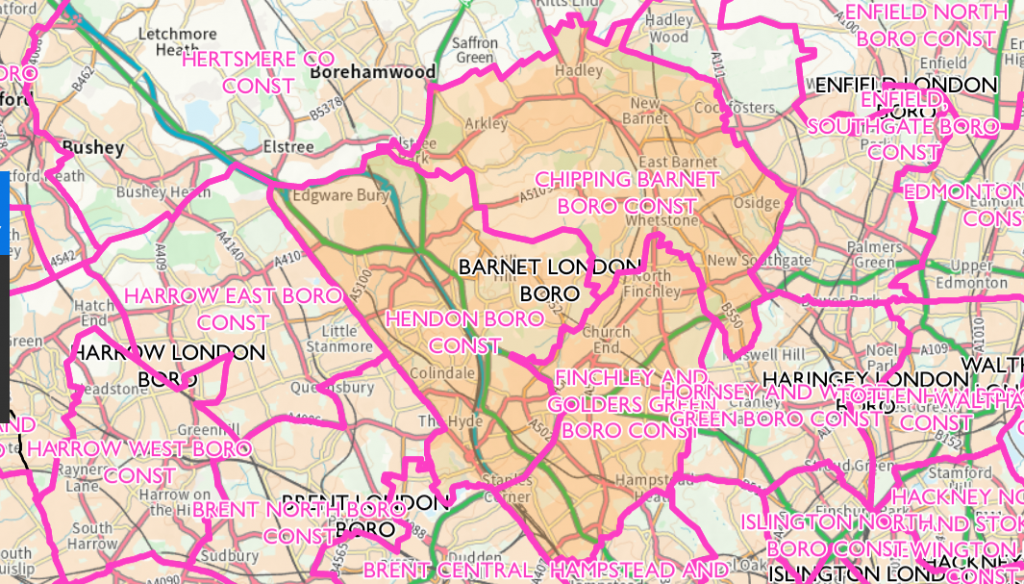The Barnet Bypass: Can the Tories hold on again?

It’s hard to believe these days, but London used to be a swing city politically. Labour tended to have an edge, but the Tories were frequently hot on their heels. The ‘popular vote’ across local elections in the city was frequently within a couple of percentage points, such as the 1990, 2002, and 2006 elections. In 2006 the Tories even swept control of half a dozen councils off Labour and governed 14 of the city’s 32 boroughs (Labour controlled 7, the rest were Lib Dem or No Overall Control).
This period also saw a certain Tory politician get elected Mayor of London a couple of times.
How times change. The Tories haven’t won by vote share since 2006, and haven’t controlled 10 or more councils since 2010. Over the past decades London has become even more cosmopolitan, socially liberal, and young compared to the national average. The Tory support base, by contrast, has trended the opposite, on average, even as it has grown overall.
The result is an increasingly inhospitable political landscape for London’s Tories, who in 2018 local elections were 15% behind Labour who controlled triple the councils.
Cor-byn there, got the T-shirt
But the Tories still held Barnet. In fact they grew their majority from ‘razor thin’ to ‘modest’.
Superficially this was a surprising result. But there was a clear culprit. Barnet has a disproportionate share of Jewish voters, who while still a distinct minority of residents (15%, as of the 2011 census) are much more prominent in Barnet communities than anywhere else in the country.
Given Corbyn’s very public disputes with the Jewish community during his leadership, many pointed to this as the key to the Tories success despite other difficult factors for them. Was it as simple as that? In truth probably not, but Keir Starmer will still be hoping his very prominent ‘Labour under new management’ messaging will have the impact needed.
For Labour to flip the borough they need a net gain of 7 councillors. There certainly are enough targets to go around.
Barnet, like all London boroughs, elects the entire council every 4 years. That’s 3 councillors per ward, all up for election simultaneously. Counting wards where Labour were within 10% last time as ‘marginal’ there are 12 councillors within striking distance. Another few seats are just outside that range. Being 10% behind isn’t nothing, but if the Labour vote was suppressed last time by Corbyn’s leadership then it’s eminently achievable.
Labour also benefit from a better national polling background too. May 2018 wasn’t the worst time for Labour in recent years, Theresa May was presiding over a low single-digits advantage at best nationally. But Labour now lead by something in the region of 4-5% (pollsters vary considerably) and are clearly more popular overall.
Reasons to be fearful
There are some reasons for doubt, nonetheless. Barnet is an outer London borough, with more wealthy suburbanites who the Tories have generally been able to depend on than central London areas can muster. Additionally, there is evidence that Labour poll gains are mostly driven by Northern seats rather than London.
Nonetheless, I think Labour should be favourites to take the borough. I will declare an interest here: I was one of the punters burned by the result back in 2018. But the wards Labour need to win should be more favourable to them than 4 years ago, and it isn’t a massive swing required. Ladbrokes will offer you 10/11 on a Labour majority (Smarkets have around 4/5). I’m on.
Quincel
Pip Moss posts on Political Betting as Quincel. He has bets on Labour to win Barnet at 10/11. You can follow him on Twitter at @PipsFunFacts